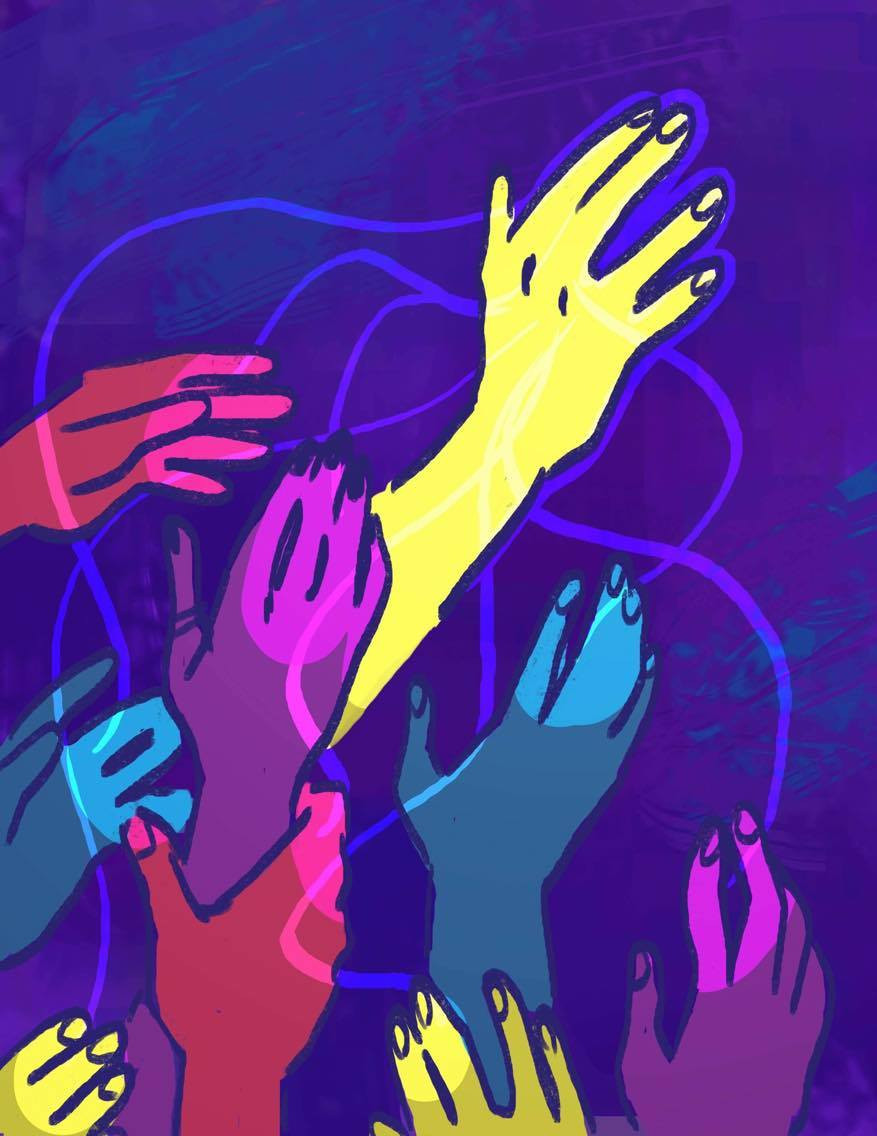Taking Back My Voice: Reporting Sexual Assault
Too Many People, Including Myself, Face Judgement From Others
I can still feel the strong grasp my hands had on my backpack, placed on my lap as if it were a shield.
My lower stomach ached and I kept shifting in my seat. My crotch burned from the despicable crime I had been a victim of less than 48 hours ago. My gaze blank, my skin cold, my mouth swollen. Little blue flowers were painted across my neck from his harsh strokes.
The receptionist commented on my tattoo and said it was pretty. Little did she know that he’d called it gorgeous and then crawled his way inside of me.
I was angry, I was numb, I was silenced, I was sitting… alone.
In 2014 women reported 554,000 sexual assaults in Canada, according to the Canadian Women’s Foundation. Out of 100 assaults, only six are reported to the police. It takes a lot of strength to build yourself back up after being a victim of a sexual assault.
According to the criminal justice system 20 per cent of women don’t report their experiences of sexual assault because of fear of retaliation, while 13 per cent of women mentioned they don’t report it out of fear that the police won’t be able to do anything to help them.
It is estimated that approximately one in three Canadian women will experience sexual assault in their lifetime. According to CNN’s sexual violence global index, 35 per cent of women worldwide have experienced physical or sexual violence.
With everything going on in the news concerning high-profile assault cases and the #MeToo movement, sexual assault has grown to be more talked about a lot more in mainstream society. Nevertheless, consent is still something that is not respected and understood. Rape victims continue to be stigmatized and doubted.
Reporting a sexual assault is the first out of many steps that drain the victim by consistently bringing them back to their trauma. Going to the police and reporting an assault is not the end of the story; there are medical exams, gynecological exams, meetings with detectives, and so on. It is incredibly difficult for a survivor to keep having to come back to their worst nightmare over and over again. Many victims fear not being understood and believed, which in some instances is true, or they fear questions concerning how much they had to drink, or why they didn’t fight back more.
The sexual assault reporting process in itself is one that is very flawed. It takes a lot of time, and victims often aren’t greeted well or listened to attentively. Although sexual assault is a criminal case, the police sometimes treat it as if someone has merely stolen their lawn chair off their front porch.
It is a similar for sexual assault cases reported at school or work. Some institutions take these matters very seriously to avoid conflict, but a lot of the time, that doesn’t necessarily resolve the situation.
Concordia, like many universities, had involved in several claims of sexual assault cases over the years. Although these matters are meant to be taken with utmost seriousness, conflicts don’t always resolve in the victim’s favor. It boils down to how much proof the victim has, and proof is hard to find. In the best case, the perpetrator gets expelled, but sometimes they just have their access to university ground limited–which doesn’t take away the anxiety and fear for the victim once they have to see their rapists on campus again.
Taking action against sexual violence is the first step, but is this enough? Is making the problem temporarily going away really the solution?
Being able to prove that a sexual assault occurred is always a tricky matter since oftentimes there are no witnesses. But that doesn’t mean that the victim isn’t telling the truth. Institutions such as Concordia try to solve conflicts the way the law would do it, which results in many victims being dismissed.
In my own experience I’ve reported my assault to both the police and the university. The process in itself was infuriating, exhausting and despairing.
I remember sitting in a chair with my legs propped up and my half naked body exposed. It was three days after I had been assaulted and a stranger was touching me in places that I couldn’t even touch myself anymore. The room was cold, I felt like I was in a morgue. The days that followed were filled with going back and forth, meeting after meeting–sometimes even forgetting which one I was going to. I was acting mechanically. I had filed a complaint with the university, and also to the police. In the span of three weeks I had told the story of how a monster raped me more times than my parents had ever told me they loved me.
The meetings gave me hope, because the people helping me believed me. But the outside world didn’t. The outside world was a group chat of loathsome men who called me a bitch and all of its synonyms. They told lies about me, made me doubt my credibility, and ultimately, made me question what was left of the life inside of me.
The process of reporting my assault hasn’t failed me. I had the chance to take back my own voice, to tell my story of how it happened, and show the true perversion of rape culture. What did fail me, were the twisted thoughts linked with rape. How some felt sad for me, but then made their girlfriends give them head without asking. How some cried with me, but stayed back when I asked for help because to them it was another teenage drama. I was repeatedly asked about my sexual history and how much I had to drink; as if that had anything to do with this.
That’s what failed me. Those people failed me.




1_600_375_90_s_c1.jpg)
